The Long-Term Benefits of Investing in Jupiter Rental Properties
Introduction to Investing in Jupiter Rental Properties
Investing in Jupiter rental properties is a proven strategy for those looking to build long-term wealth. The real estate market in Jupiter, Florida, offers a combination of strong rental demand, a favorable location, and a healthy economy. Over time, rental properties can generate consistent cash flow, provide tax benefits, and appreciate in value. However, like any investment, it requires thoughtful planning, proper property management, and a long-term perspective to realize the full potential of your investment.
In this guide, we will explore the long-term benefits of investing in Jupiter rental properties. We’ll delve into the reasons why Jupiter is an attractive market, the key advantages of rental property ownership, and provide practical tips for successful long-term property investment. We’ll also address common challenges faced by rental property owners and offer solutions for overcoming these obstacles.
Why Invest in Jupiter, Florida?
Before diving into the benefits, it’s essential to understand why Jupiter is an appealing location for real estate investment. This coastal town, located in Palm Beach County, offers a unique blend of features that make it an attractive investment opportunity.
Prime Location
Jupiter is known for its prime location along the southeastern coast of Florida. With its proximity to major highways, airports, and beaches, it offers convenience and accessibility. The town is also home to a vibrant cultural scene, excellent schools, and a wide range of recreational activities, making it a popular destination for families and retirees alike. These factors drive demand for both rental properties and homebuyers.
Strong Rental Demand
Jupiter has a robust rental market, fueled by a growing population and a steady influx of seasonal residents. Many people choose to rent in Jupiter due to its appeal as a vacation destination, as well as the presence of major employers in nearby areas like West Palm Beach and Palm Beach Gardens. This creates a high demand for rental properties, which can lead to stable cash flow for investors.
Appreciation Potential
Jupiter’s real estate market has seen steady growth in recent years, with property values steadily appreciating. The combination of limited available land, rising demand, and a growing economy ensures that real estate in Jupiter has the potential to continue appreciating over time. Investors who purchase rental properties in Jupiter can expect long-term capital appreciation, which can result in substantial returns when they decide to sell in the future.
Key Benefits of Investing in Jupiter Rental Properties
There are numerous advantages to investing in rental properties in Jupiter. Below, we’ll explore some of the most significant benefits that investors can expect to experience.
1. Steady Cash Flow
One of the most attractive benefits of owning rental properties is the potential for steady, passive income. When managed correctly, rental properties can generate consistent monthly cash flow from tenants who pay rent. In Jupiter, the demand for rental properties is high, which translates into reliable rental income for property owners.
For example, if you own a single-family home in Jupiter and rent it out for $2,500 per month, you can expect to receive $30,000 annually in rental income. Over time, this income can help cover the costs of your mortgage, property taxes, insurance, and maintenance expenses, while also generating additional profit.
2. Property Appreciation
In addition to rental income, property appreciation is one of the most significant long-term benefits of investing in real estate. As the market appreciates, the value of your property increases, which can result in significant equity gains. Over the past few years, Jupiter has seen strong property value growth, and this trend is expected to continue due to its desirable location and limited available land.
For example, a property purchased in 2010 for $300,000 may be worth $500,000 or more today, representing a significant increase in equity. This appreciation can be realized when you decide to sell the property, resulting in a substantial return on investment.
3. Tax Benefits
Owning rental properties offers several tax advantages that can help reduce your overall tax burden. The IRS allows property owners to deduct various expenses related to the property, such as mortgage interest, property taxes, insurance premiums, repairs, and maintenance. Additionally, you can depreciate the value of the property over time, which can provide additional tax savings.
By taking advantage of these tax deductions, investors can reduce their taxable income and keep more of their rental income. For example, if you earn $30,000 annually from your rental property but have $10,000 in deductible expenses, your taxable rental income will be reduced to $20,000.
4. Diversification of Investment Portfolio
Investing in Jupiter rental properties offers an excellent opportunity for portfolio diversification. Real estate investments are typically less volatile than stocks and bonds, providing a level of stability that can help balance the risks of other investments. By including rental properties in your investment portfolio, you can reduce the overall risk and volatility, particularly in uncertain economic times.
For instance, if you have a substantial amount of money invested in the stock market and experience a market downturn, the stability of your rental property income can provide a hedge against potential losses. Additionally, owning rental properties allows you to tap into a physical asset that can appreciate in value over time, further diversifying your wealth.
5. Leverage and Financing
One of the unique advantages of investing in real estate is the ability to use leverage, or borrowed money, to finance the property. When you purchase a rental property, you typically don’t have to pay the full purchase price upfront. Instead, you can finance the property with a mortgage, using the rental income generated by the property to pay off the loan over time.
In Jupiter, where property values are appreciating, this leverage can significantly amplify your returns. For example, if you purchase a $500,000 rental property with a 20% down payment of $100,000 and the property appreciates by 5% annually, you can see a substantial increase in your equity. This allows you to build wealth more quickly compared to other types of investments.
6. Inflation Hedge
Real estate investments, particularly rental properties, can serve as an effective hedge against inflation. As inflation increases, the cost of goods and services rises, which can erode the purchasing power of cash. However, rental properties tend to rise in value over time, keeping pace with inflation. Additionally, rental rates often increase with inflation, providing property owners with the ability to raise rent and maintain their income levels.
For example, if inflation rises by 3% per year, property owners can increase rent by a similar amount, ensuring that their cash flow keeps up with the rising cost of living. This can help protect the long-term value of your rental investment.
7. Legacy Building and Wealth Transfer
Investing in rental properties can be an excellent way to build generational wealth. Over time, the equity in your properties can grow, and the rental income can provide a steady source of income for your family. Additionally, rental properties can be passed down to future generations, providing long-term financial security for your heirs.
By investing in Jupiter rental properties and holding onto them for an extended period, you can create a legacy of wealth that can benefit your family for years to come. This is particularly true if you purchase properties in areas with high demand and limited supply, where property values are likely to appreciate steadily.
Managing the Challenges of Jupiter Rental Properties
While there are numerous benefits to investing in Jupiter rental properties, it’s essential to be aware of the challenges that come with property ownership. Understanding these challenges and having strategies in place to address them will help ensure the long-term success of your investment.
1. Property Management
One of the biggest challenges of owning rental properties is managing the property effectively. This includes finding tenants, maintaining the property, handling tenant issues, and ensuring timely rent payments. While property management can be time-consuming, it is crucial to the long-term success of your investment.
To streamline property management, many investors choose to hire a professional property management company. These companies can handle all aspects of property management, from screening tenants to dealing with maintenance requests, leaving you with more time to focus on other aspects of your investment.
2. Tenant Turnover
Tenant turnover is another common challenge for rental property owners. When tenants move out, it can result in a period of vacancy, during which you are not receiving rental income. Additionally, turnover can lead to increased costs for repairs and cleaning.
To minimize tenant turnover, it’s essential to provide a high level of customer service to your tenants and address any maintenance issues promptly. Offering lease incentives, such as renewal bonuses, can also help retain tenants for longer periods.
3. Market Fluctuations
While Jupiter’s real estate market has shown strong appreciation, the market can still fluctuate due to economic factors such as changes in interest rates or the overall health of the economy. During times of market downturns, property values may decrease, and rental demand may decline.
To mitigate the impact of market fluctuations, it’s essential to approach your rental property investment with a long-term perspective. Even during periods of market instability, rental properties in desirable locations like Jupiter tend to perform better than those in less desirable areas.
4. Maintenance and Repairs
Regular maintenance and unexpected repairs are an unavoidable part of owning rental properties. From routine tasks like landscaping to more significant repairs such as roof replacements, maintenance costs can add up over time.
To manage maintenance costs, it’s crucial to establish a maintenance plan that includes regular inspections and preventive measures. Additionally, budgeting for unexpected repairs by setting aside a maintenance reserve fund can help ensure that you have the financial resources to address issues as they arise.

Get a Free Rental Analysis
Want to know how much your home will rent for? We’ll send you a free rental report!
Maximizing Cash Flow and Profitability
One of the key goals for any rental property investor is maximizing cash flow and ensuring long-term profitability. In Jupiter, Florida, where rental demand remains high, there are several strategies you can implement to increase the profitability of your investment.
1. Strategic Property Selection
Selecting the right property is one of the most important steps in ensuring long-term profitability. Not all rental properties are created equal, and investing in the right type of property can have a significant impact on cash flow and appreciation potential. When considering a property in Jupiter, it’s essential to look at factors such as location, property condition, and the potential for future development.
For example, properties located near popular amenities like shopping centers, beaches, and major highways are likely to attract higher-paying tenants, leading to better rental income. Properties in established neighborhoods or in proximity to schools, parks, and healthcare facilities tend to maintain a strong tenant base, which is crucial for consistent rental income.
Investors should also focus on properties with the potential for upgrades and renovations. By adding value to a property through renovations—such as updating kitchens, bathrooms, or landscaping—you can increase the property’s rentability and charge higher rents. Additionally, renovated properties often appreciate faster than those in need of repairs, giving you the potential for capital gains when you decide to sell.
2. Rent Adjustments and Lease Strategies
Another way to maximize cash flow is by implementing strategic rent adjustments and lease strategies. Regular rent increases in line with market conditions can help keep your income stream growing. However, it’s important to ensure that rent increases are competitive and fair, as excessive increases may cause tenants to seek other housing options.
A lease strategy that includes annual or biennial rent increases can help maintain long-term cash flow. For example, setting a fixed rate for rent increases—such as 3-5% annually—ensures that rental rates are aligned with inflation and market demand.
Additionally, consider offering lease incentives such as flexible lease terms or rent discounts for tenants who sign longer leases. These incentives can help attract and retain tenants while still maintaining a healthy cash flow. Long-term tenants are less likely to leave, reducing vacancy costs and the need for frequent tenant searches.
3. Diversifying Your Rental Portfolio
In addition to maximizing cash flow from individual properties, diversification is key to ensuring long-term profitability. As with any investment strategy, diversification reduces risk and can smooth out fluctuations in rental income. By diversifying your rental portfolio across different property types or neighborhoods, you mitigate the impact of any local market downturns.
In Jupiter, you may consider diversifying between single-family homes, townhomes, and multifamily properties. Single-family homes may attract higher-quality tenants, while multifamily properties offer the advantage of multiple income streams from a single location, potentially offsetting periods of vacancy in one unit. By balancing different types of properties, you can ensure that your rental income remains consistent, regardless of market conditions.
Another diversification strategy is to consider short-term vacation rentals in addition to long-term residential rentals. With Jupiter’s popularity as a tourist destination, short-term rentals can provide higher rental yields, particularly during peak tourist seasons. However, it’s important to be aware of local regulations regarding short-term rentals and ensure compliance with zoning and licensing requirements.
Property Management Best Practices
Effective property management is crucial to the success of your Jupiter rental property investment. While many investors choose to manage their properties themselves, others opt to hire property management companies to handle day-to-day operations. Regardless of the route you take, there are several best practices that can help ensure the smooth operation of your rental properties.
1. Tenant Screening and Selection
One of the most important aspects of property management is tenant screening. A strong tenant is critical to the profitability of your rental property, as they will be responsible for paying rent on time, maintaining the property, and adhering to the terms of the lease. A thorough tenant screening process helps ensure that you select reliable tenants who are likely to stay long-term.
Key components of tenant screening include:
- Credit checks: Review the tenant’s credit score and history to assess their financial responsibility.
- Rental history: Speak with previous landlords to verify that the tenant has a history of paying rent on time and taking care of the property.
- Employment verification: Confirm that the tenant has a stable job and sufficient income to cover rent payments.
- Background checks: Check criminal records to ensure the safety of your property and other tenants.
By conducting a comprehensive screening process, you can significantly reduce the risk of tenant-related issues, such as late rent payments or property damage.
2. Clear Communication and Lease Terms
Clear communication with tenants is key to ensuring that everyone understands their rights and responsibilities. A well-drafted lease agreement is the foundation for successful property management. The lease should clearly outline the rental amount, payment due dates, security deposit terms, maintenance responsibilities, and other important details such as pet policies and lease duration.
Make sure to clearly communicate the expectations to tenants, and always provide a point of contact for questions or maintenance requests. Address issues promptly and professionally, as strong communication can help prevent misunderstandings and maintain a positive relationship with tenants.
3. Regular Maintenance and Inspections
Preventive maintenance is an essential part of keeping your Jupiter rental property in good condition and preventing costly repairs. Regular inspections and routine maintenance tasks can help identify issues before they become major problems. Ensure that the property’s HVAC systems, plumbing, and appliances are well-maintained to avoid unexpected breakdowns.
Set up a regular schedule for inspecting the property, including seasonal checks to ensure that everything is in working order. Additionally, addressing maintenance requests from tenants promptly helps maintain tenant satisfaction and reduces the likelihood of tenant turnover.
4. Managing Vacancies and Tenant Turnover
Vacancies are one of the most costly challenges that property owners face. Minimizing vacancy periods is essential to maintaining consistent rental income. To keep your property occupied, it’s important to advertise effectively, price the property competitively, and screen prospective tenants thoroughly.
During periods of vacancy, ensure that the property is well-maintained, clean, and presentable. Fresh paint, landscaping, and minor repairs can make a significant difference in attracting quality tenants. Consider offering move-in incentives, such as discounted rent for the first month, to help attract tenants more quickly.
Tenant turnover can also be costly. When tenants vacate, you may need to invest in cleaning, repairs, and marketing to fill the property again. To reduce turnover, focus on creating a positive tenant experience by addressing concerns promptly and maintaining the property to a high standard. Happy tenants are more likely to renew their leases and stay longer, helping you avoid vacancies.
Legal Considerations and Compliance
Investing in rental properties in Jupiter requires an understanding of local laws and regulations. While rental property owners have certain rights, they also have responsibilities to comply with various legal requirements. Ensuring that you stay up-to-date with these laws will help you avoid costly fines and legal issues.
1. Fair Housing Laws
Federal and state fair housing laws prohibit discrimination in rental practices. These laws ensure that all potential tenants are treated fairly, regardless of race, color, religion, sex, familial status, disability, or national origin. As a property owner, you must ensure that your rental policies and practices comply with these laws. For example, your marketing materials, tenant screening process, and leasing practices should not discriminate against any protected class.
2. Local Zoning and Licensing Requirements
In Jupiter, as in other areas, certain properties may be subject to zoning laws and licensing requirements. If you plan to rent out a property, especially as a short-term vacation rental, it’s essential to check with local authorities to ensure that your property complies with zoning regulations and rental licensing requirements.
Additionally, if you hire a property management company, ensure that they are knowledgeable about local regulations and can help ensure that your rental properties are in full compliance.

The Long-Term Benefits of Investing in Jupiter Rental Properties
Building Wealth Through Appreciation
One of the most attractive long-term benefits of investing in rental properties in Jupiter is the potential for property appreciation. Over time, the value of well-located properties tends to increase, allowing investors to build significant wealth through capital gains when they eventually sell.
1. Understanding Market Trends
Jupiter has consistently seen growth in property values due to its desirable location, quality of life, and proximity to beaches, shopping centers, and major transportation routes. Property values in Jupiter are influenced by both local and national economic conditions, but the area’s limited supply of land and high demand for housing make it an attractive place for long-term investment.
Investors can track market trends and property values in Jupiter by working with a local real estate agent who is familiar with the area’s neighborhoods and can provide insights into property appreciation. Keeping an eye on factors such as local development projects, infrastructure improvements, and market demand will help you make informed decisions about when to buy and sell.
2. Investing in Prime Locations
The key to property appreciation is location. As a popular destination for tourists and a thriving community for residents, Jupiter offers various neighborhoods with significant appreciation potential. Areas close to the beach, near golf courses, or in the heart of the town tend to experience higher property value increases over time. Identifying these prime locations early can help you invest in properties that are likely to appreciate faster.
Additionally, properties near new developments or major infrastructure projects may benefit from increased demand once these projects are completed. For example, if a new highway or shopping mall is being built in a nearby area, you can expect the demand for rental properties in that neighborhood to rise, contributing to the appreciation of your property.
3. Capitalizing on Equity Growth
As your Jupiter rental properties appreciate in value, the equity in your investment grows. Equity is the difference between the current market value of your property and the amount you owe on your mortgage. With each mortgage payment you make, you build equity, which can be used for future investments, home improvements, or cash flow.
Leveraging your property’s equity can be an effective strategy for financing additional rental properties. For example, you can use the equity from one property to fund a down payment on another investment property, thereby expanding your rental portfolio and increasing your long-term returns.
Tax Advantages of Rental Property Ownership
Rental property investors can benefit from a variety of tax advantages that help offset expenses and increase profitability. Understanding these tax benefits is essential for maximizing your investment returns in Jupiter.
1. Depreciation
One of the key tax advantages of owning rental properties is the ability to depreciate the property over time. Depreciation is a tax deduction that allows property owners to write off a portion of the property’s value each year as an expense. This can significantly reduce your taxable income and increase cash flow.
In the U.S., the IRS allows residential rental properties to be depreciated over 27.5 years. Depreciation deductions can be used to offset rental income, reducing your overall tax liability. Keep in mind that depreciation is a non-cash expense, meaning it does not affect your actual cash flow, but it can result in tax savings.
2. Deductions for Expenses
In addition to depreciation, rental property owners can deduct a variety of expenses related to property maintenance, management, and operation. These deductions can help lower taxable income, further increasing profitability. Some common deductible expenses include:
- Mortgage interest: Interest paid on your rental property mortgage is tax-deductible.
- Property taxes: Property taxes paid on rental properties can be deducted.
- Repairs and maintenance: Costs for routine repairs, such as fixing plumbing or electrical issues, can be deducted.
- Property management fees: If you hire a property management company, their fees are tax-deductible.
- Insurance: The cost of property insurance is deductible.
It’s important to keep detailed records of all expenses related to your rental properties to ensure that you take full advantage of these deductions.
3. 1031 Exchange
A 1031 exchange allows investors to defer paying capital gains taxes when they sell a rental property and reinvest the proceeds into another like-kind property. This tax strategy can help you defer taxes on the sale of your property while reinvesting the capital into new properties, allowing you to grow your real estate portfolio without the immediate tax burden.
The 1031 exchange is a powerful tool for long-term investors who plan to hold rental properties for the long haul. However, it’s essential to work with a tax professional or real estate expert to navigate the complexities of the 1031 exchange process.
Overcoming Common Challenges in Jupiter Rental Property Investments
While the long-term benefits of investing in Jupiter rental properties are significant, it’s important to be aware of and prepare for potential challenges. By anticipating and addressing common issues, you can protect your investment and ensure steady returns over time.
1. Market Fluctuations and Economic Conditions
Like any real estate market, Jupiter’s property values and rental rates can fluctuate based on economic conditions, interest rates, and demand. While Jupiter’s real estate market has seen steady growth, investors should still be prepared for occasional market slowdowns.
To mitigate this risk, it’s important to focus on long-term investment goals rather than short-term gains. Investing in properties that are in desirable locations with high demand can help ensure that your rental income remains steady, even during market downturns. Diversifying your portfolio and having a buffer of savings to cover expenses during slower periods can also help you weather economic challenges.
2. Tenant Turnover and Vacancy
Tenant turnover and vacancy rates are two of the most significant challenges for rental property owners. High turnover can result in lost rental income, increased repair costs, and the need for extensive advertising to find new tenants. Fortunately, there are several strategies you can use to reduce turnover and minimize vacancy periods.
- Offer competitive rents: Pricing your rental property appropriately is key to attracting long-term tenants. Be sure to research the local market and set rental rates that align with comparable properties.
- Maintain the property: Regular maintenance and prompt responses to tenant concerns can help build positive relationships and encourage tenants to stay longer.
- Screen tenants carefully: Thorough tenant screening can help reduce the likelihood of late payments, property damage, and early lease terminations.
3. Property Management Challenges
For investors who manage their own properties, managing day-to-day operations can be time-consuming and challenging. From dealing with tenant inquiries to handling maintenance requests, property management requires significant attention to detail.
To alleviate these challenges, many investors choose to hire a property management company. A reputable property management firm can handle tenant screening, rent collection, property maintenance, and compliance with local laws. This allows investors to focus on other aspects of their business, such as finding new investment opportunities or expanding their portfolios.
If you choose to manage the properties yourself, consider implementing a property management system to streamline tasks and improve efficiency. Many property management software tools offer features like online rent collection, maintenance tracking, and communication with tenants.
Preparing for the Future: Exit Strategies
While investing in rental properties can provide long-term returns, it’s also important to plan for the eventual exit strategy. Understanding your exit options ensures that you can make the most of your investment when the time comes to sell.
1. Selling for Capital Gains
One common exit strategy is to sell your rental properties for capital gains. By holding properties for a long period, you can take advantage of property appreciation, allowing you to sell at a profit. When selling, be sure to factor in the cost of capital gains taxes, which can be significant if the property has appreciated substantially.
2. Passing the Property to Heirs
Another option is to pass the property on to heirs. Real estate can be a valuable asset to leave to family members, providing them with an income stream or a valuable asset they can sell. Additionally, the property may benefit from a step-up in basis, which reduces capital gains taxes when the property is sold.
3. Refinancing for Cash Flow
Refinancing your properties can provide additional cash flow by allowing you to pull out equity without selling. This can be a good option if you want to continue generating rental income while unlocking capital for new investments. Be sure to work with a financial advisor to determine the best refinancing strategy for your situation.
With proper planning and strategic decision-making, you can ensure that your rental properties continue to provide long-term benefits, building wealth, generating cash flow, and offering tax advantages for years to come.
Suggested Relevant Links:
Investment Property Cashflow Calculator
Rent Collection Services Palm Beach
Jupiter Property Management Companies
Commercial vs. Residential Real Estate: Making the Right Investment Choice
Frequently Asked Questions (FAQ) about Investing in Jupiter Rental Properties
1. Why should I invest in rental properties in Jupiter?
Jupiter offers a desirable location with strong demand for rental properties due to its beautiful beaches, excellent amenities, and proximity to major attractions. The area’s limited land supply and consistent property value appreciation make it a prime market for long-term real estate investments.
2. How can I benefit from property appreciation in Jupiter?
By investing in well-located rental properties, you can take advantage of Jupiter’s consistent property value growth. Over time, the appreciation in your property’s value can lead to significant capital gains when you decide to sell.
3. What are the tax benefits of owning rental properties?
Rental property owners can benefit from deductions such as mortgage interest, property taxes, repairs, and insurance. Additionally, depreciation allows you to reduce taxable income, and strategies like 1031 exchanges can help defer capital gains taxes when reinvesting in new properties.
4. What are the common challenges of owning rental properties in Jupiter?
The main challenges include market fluctuations, tenant turnover, vacancies, and property management. However, careful tenant screening, regular property maintenance, and working with a property management company can help mitigate these issues.
5. Should I manage my rental properties myself or hire a property management company?
Managing properties yourself can save money but requires significant time and effort. Hiring a property management company allows you to focus on other investments, as they handle tenant screening, rent collection, maintenance, and legal compliance.
6. What should I consider when choosing a location for investment properties in Jupiter?
Look for properties in areas with strong rental demand, close to beaches, amenities, and transportation hubs. Properties in prime locations tend to appreciate faster and offer higher rental yields.
7. How can I protect my rental income during market downturns?
Investing in desirable areas with high demand, diversifying your portfolio, and having a financial buffer for slow periods can help protect your rental income during economic downturns or market fluctuations.
8. What exit strategies should I consider?
You can exit by selling for capital gains, passing properties on to heirs, or refinancing to unlock equity. Each strategy offers different benefits depending on your long-term goals and financial situation.



